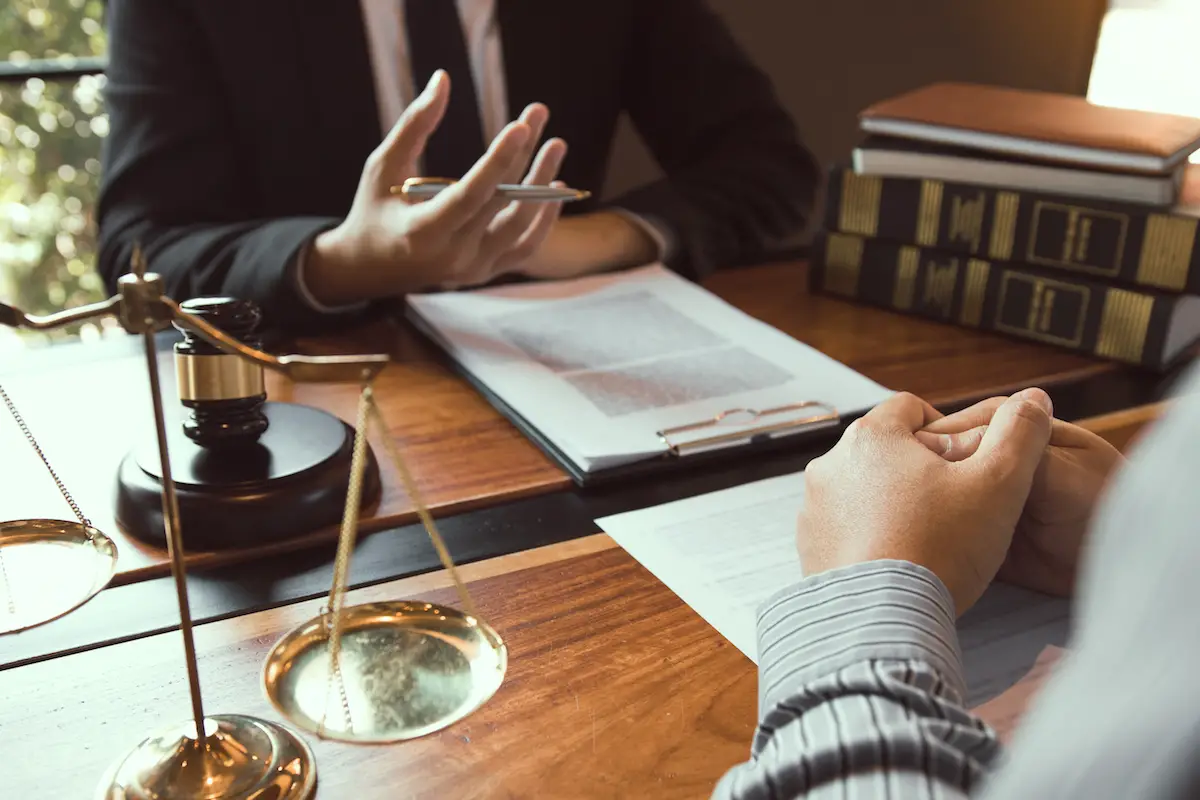Can Hearsay Be Used In Court?
Hearsay is probably a term you have heard before in some context. Maybe you saw it on a TV show or heard a news reporter mention it. However, what you probably didn’t realize is that hearsay plays a major role in our court system. Hearsay is not a law or rule, but a legal argument.
So what exactly is hearsay and can it be used in court? According to the Oxford English Dictionary, hearsay is defined as “Information received from other people that you do not know about personally.” This means that if someone was to say something they heard another person say, it would be considered hearsay if used in court.
Hearsay is used often and allowed in court. However, it is not always admissible as evidence in court. This is because is considered unreliable. For example, if your friend tells you that he heard about a crime being committed, then this would not be admissible as evidence because there is no way to prove that what your friend said happened.
Therefore, hearsay can only be used on the stand if other factors prove the person said what you are claiming they said. Otherwise, the evidence will be considered unreliable and inadmissible.
Examples Of Hearsay
In one case, a defendant was convicted of first-degree murder and attempted first-degree murder after he shot two people in a crowded bar.
The defendant appealed his convictions arguing that the trial court erred in admitting the hearsay statements of his co-conspirators. The defendant argued that the testimony was unreliable and should not have been admitted at trial.
The court agreed with the defendant and reversed his convictions holding that “the admission of a co-conspirator’s extrajudicial statement violates a defendant’s Sixth Amendment right to be confronted with the witnesses against him unless the co-conspirator is unavailable to testify and the statement bears adequate indicia of reliability.”
In this case, one of the statements did not bear adequate indicia of reliability because there was no way to cross-examine the person who heard the statement.
Hearsay As Evidence?
Another example would be a situation where a woman was accused of murdering her husband. During the investigation, investigators interviewed a neighbor who claimed that she had heard the defendant arguing with her husband coming from their apartment right before he was killed.
In this case, it is important to note that even though there was lots of circumstantial evidence against the defendant, no physical evidence was present.
This is because the actual murder weapon was never found, there were no witnesses to the crime, and the only evidence linking her to the crime scene was hearsay.
This case went to trial. Although prosecutors used this neighbor’s statement as evidence against the defendant during the first two trials, she was acquitted both times. The third time the case went to trial, however, she was convicted of manslaughter and sentenced to ten years in prison.
The neighbor’s statement is considered hearsay because it is about what someone else said. It may contain reliable information, but there is no way to verify that what the neighbor said happened.
But this does not mean that it cannot be used as evidence in court. If there are multiple pieces of circumstantial evidence against the defendant, the statement can be used to prove motive or intent.
When A Court Refuses Hearsay
As previously stated, hearsay can and is often used in court, however, there are some specific instances where it is almost immediately thrown out. A few of those instances are:
- If the statement was made in front of the judge or jury
- If it is considered spontaneous
- When a witness testifies to what they heard from another person and their body language suggests that they are making it up
- If the witness was not made aware of the consequences for lying and then lies about what someone else said.
History of Hearsay
Hearsay has been used in court since the early days of the English common law. Hearsay evidence is anything that can be said by, or about, a person that they did not personally see or hear with their senses.
Back then if two people had witnessed an event together it was okay for them to give testimony about what they saw. However, the moment one of them left or died, any testimony given by that person was considered hearsay. This is because there was no way to prove what happened through the words of the person who was no longer there to testify.
When the United States became an independent country, hearsay evidence was allowed in court. However, by 1808 it had been banned again. The Supreme Court later decided that if a witness did not give testimony then they could not be held accountable for what they might have said outside of court.
So not only did hearsay evidence come back into use, but the Supreme Court also decided that it could be used to impeach a witness if they denied saying what was attributed to them.
Hearsay In The 21st Century
Today, hearsay evidence is allowed in many jurisdictions across America depending on where you live and how you define it.
For example, in California, hearsay evidence is allowed if the court believes that what you are testifying to was not said for getting an advantage or hurting someone else. However, this rule does not apply if the statement cannot be considered reliable.
Depending on where you live, what you say in court could be held against you if it is later found to be false. This means that when your attorney asks you questions, they can use evidence given by someone else to prove that the event did happen even though it was not directly said by you.
Hearsay evidence can be categorized as either “out-of-court” or “in-court.”

Out-of-Court Hearsay
Out-of-court hearsay is any statement made by a party outside of the courtroom. This is later introduced as evidence in court.
In-Court Hearsay
In-court hearsay is any statement made during the trial that has not been given to establish the truthfulness of its content. Instead, it is used solely if someone wants to impeach another witness. For example, a witness might say that someone told them that they saw the accused commit a crime.
If this is offered to impeach another witness, then it may be admissible during impeachment only if the party against whom the statement is directed had an opportunity and similar motive to develop its contents if true.
How Can Hearsay Help a Trial?
Hearsay is very helpful in many different types of trials. They help prove motive, intent, and even if someone was lying about something that happened in the past.
In cases of child abuse or sexual assault, hearsay can be used to prove that the alleged victim was not lying about what happened to them.
Hearsay is commonly used in trials where there are no witnesses to what happened. The only proof of what occurred looks to be the testimony of one person against another. In this instance, hearsay can help prove that an event did happen instead of being a he said/she said situation.
For example, when you’re at trial certain things can be used as evidence. You can question the other witnesses about the evidence because it is their testimony. However, you are not allowed to question them about anything they might have said outside of court.
The state can do this, though. If you say something out-of-court that’s hearsay, it can be used against you to impeach your testimony.
What Happens If You Lie In Court?
If you lie in court, then the consequences could be very severe. It may lead to that person lying about what happened. Even if it is a lie that helps you, it can still come back to haunt you.
If you accidentally say something in court and find out later that the information was false, then it could be seen as perjury. The witness might have been tricked into lying because the attorney’s questions were leading.
The witness may have been confused or just plain lied about something that happened. However, it does not always have to be a lie in court that can lead to perjury charges.
Sometimes it is just the simple act of saying something out-of-court and then denying it in court. It does not matter if you were lying when you said it.
If this happens with anything regarding hearsay and if your attorney finds out about it, then they can use it to impeach you. For example, if you say that someone told you that the accused committed a crime and then say in court that nobody told you anything like that when it’s brought up by the state or other side.
If there was a chance for you to develop what was said into something that could be used as evidence then it is not hearsay.
Trust Your Lawyer
When navigating hearsay, it is important to trust your lawyer. Someone may have a good idea of what they are talking about. However, if their questions were leading or they did not provide an opportunity for you to develop the information, it is hearsay. Thus, it cannot be used in court.
The more credible a witness looks when being questioned, the better chance they have of having their testimony believed when there are no witnesses to the crime. Testimony must be given in court, but it is also important that what you say is true and accurate; this goes for all witnesses at trial.








